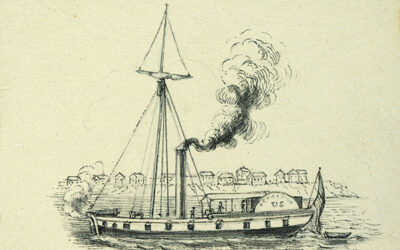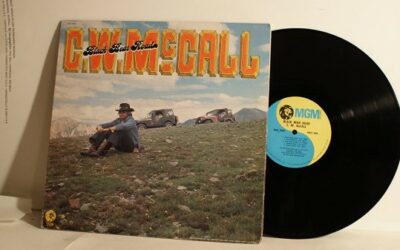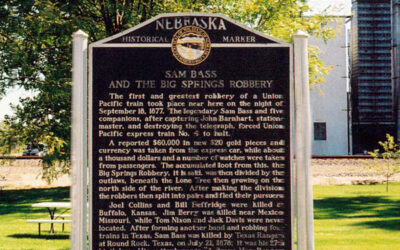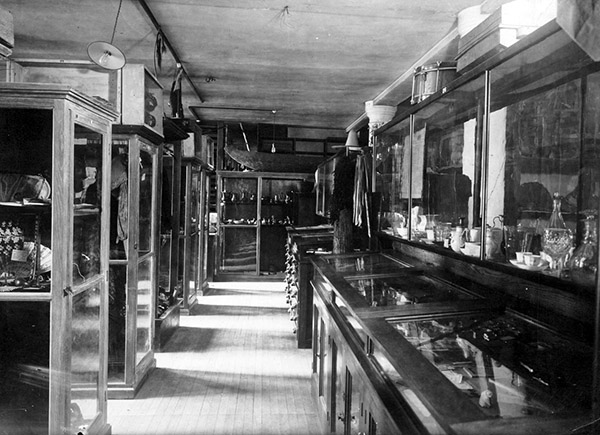
Recently a sharp-eyed researcher discovered something about the Nebraska State Historical Society that escaped everyone here for nearly 150 years. It reveals Nebraska pioneers’ consciousness of their role in history.
(Photo above: The NSHS museum in 1917. It was housed in the University of Nebraska Library, today’s Architecture Hall.)
Local historian Dale Nobbman was doing research in the archives of the Lancaster County Register of Deeds when he discovered a handwritten “Articles of Incorporation” for the Nebraska State Historical Society. It was filed for record on November 2, 1869.
This was puzzling. That’s nine years earlier than the NSHS’s accepted founding in 1878, the year that is proudly emblazoned on our official seal. Is the NSHS older than we thought? Have we spent nearly a century-and-a-half telling everyone in the state about their history without knowing our own?
Here is the document:
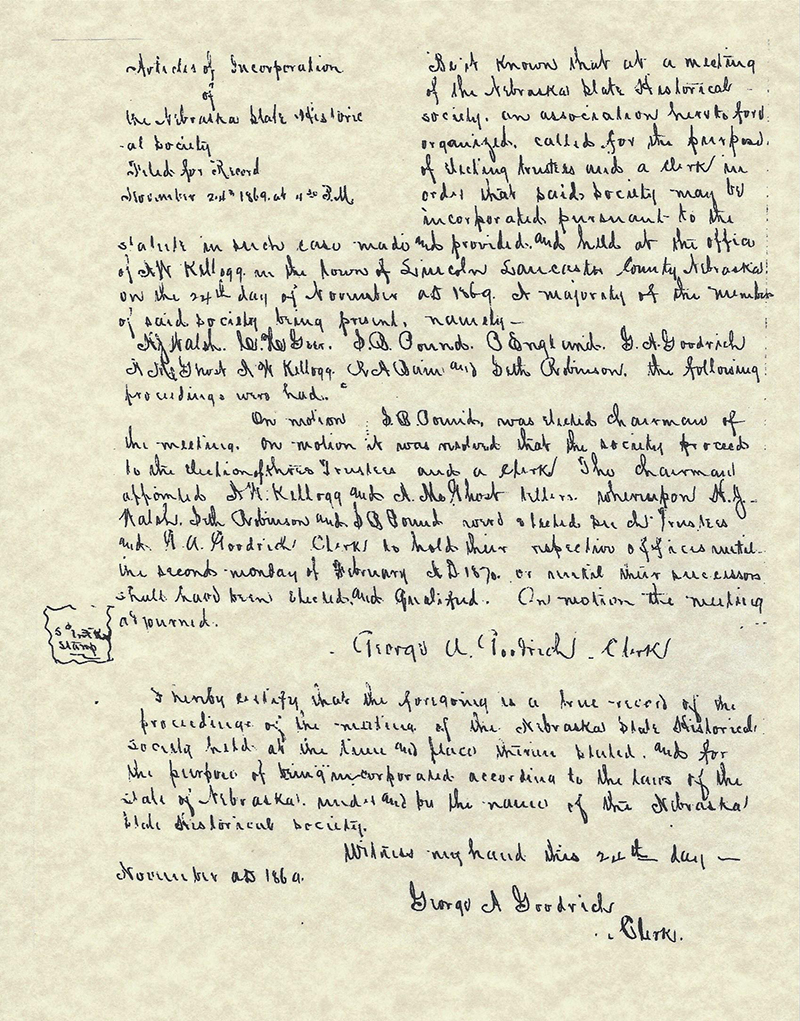
No one here had heard of this document, and it is not mentioned in any NSHS history. But the members named in the document included prominent men such as Charles Gere (publisher of the Nebraska State Journal, forerunner of today’s Lincoln Journal Star) and Stephen B. Pound (a judge best remembered today for his famous children, legal scholar Roscoe Pound and folklorist and linguist Louise Pound). This was a serious group of local leaders.
But the NSHS of 1869 wasn’t the first attempt to form a Nebraska-wide historical organization. The short-lived “Nebraska Historical Society” was founded in 1858, just four years after the territory was opened to settlement. This early group sent letters to newspapers asking for artifacts and information about natural history, Indians, and early white settlements. The NHS eventually died for lack of support, and their hundred-volume library was lost.
In 1867, another group formed the State Historical and Library Association, which even had a plot of land reserved in the newly-renamed village of Lincoln. But it, too, faded away.
We can only guess at the story behind the 1869 Nebraska State Historical Society. It might be significant that the 1867 and 1869 organizations list two completely different sets of men (mostly from Lincoln). Since these men were local leaders prone to bitter political and business rivalries, the organizations themselves may have been rivals. Dale Nobbman sent an article titled “Nebraska State Historical Society,” which appeared in the Nebraska Advertiser (Brownville) of June 16, 1870. The NSHS was “asking the people of the State to furnish them with Geological, Archaeological, Agriculture [sic], Mythological, Aboriginal, Mechanical, and Biographical facts,” and gave the names of officers in Nebraska City and Omaha, but not Lincoln.
Thus far we’ve found nothing more. Apparently the original NSHS was defunct by the time today’s NSHS was incorporated in 1878. Our earliest documents make no mention of previous attempts to found a state historical society. Two of our 1878 founders were members of the 1867 Historical and Library Association, but none of the 1869-70 NSHS men were founders of today’s NSHS, though both Pound and Gere later served as officers.
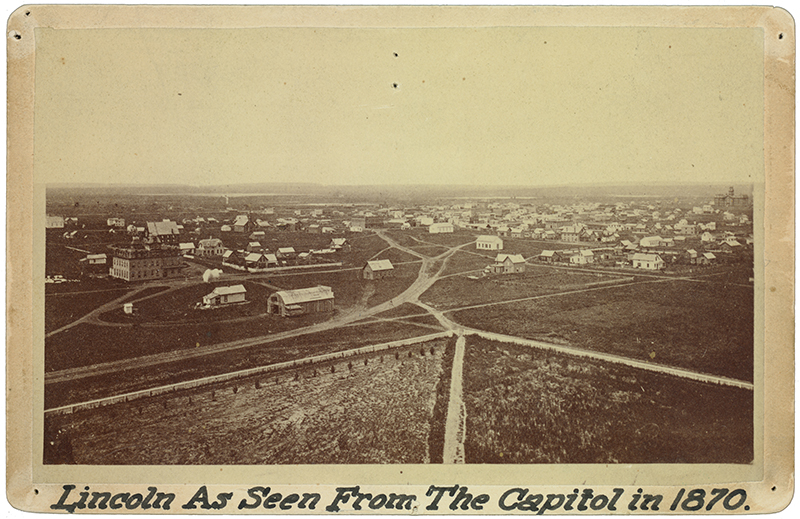
Consider what Nebraska was like in the 1860s: frontier, with a scattering of new farms and ramshackle towns along its eastern border, and a Native population increasingly confined to reservations. Early historical societies expressed some interest in Indian history, but their own half-built communities had only the briefest history.
But these men were conscious of making history in a way that most of us today are not. This was partly self-interested. These were exactly the sort of men who could expect to be celebrated as Founding Fathers by later historians. As it turned out, we now know that history becomes a lot more interesting when it broadens to include more than just politically-connected white men, but we can’t help but admire their foresight. Long before they had the resources to make it happen, they set out to preserve a history that was still in the making.
–David L. Bristow, Editor

